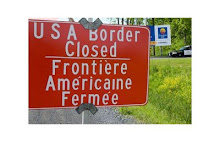Saturday, October 23, 2010
Seneca Nation Attorneys' Weak Showing in Court Shows Why We Shouldn't Be There
By failing to challenge the New York State's authority to interfere with Native commerce in their so-called fight against the State, Seneca Nation attorneys have left many, including the judge in the case, believing that the Seneca Nation has conceded its sovereignty to the State. At this point the entire legal fight has hung on the SNI fighting to keep State wholesalers in the Native tobacco business. Their argument is not that we cannot be compelled to collect tax for the State but rather the method the State is attempting to employ is too burdensome.
Now, I am one of those that believe it is wrong for us to wrap ourselves up in a bunch treaties to defend ourselves. Unlike the "Honor Indian Treaty" crowd, I reject the notion that our territories were created by them and that we are, likewise, defined by them. Our sovereignty is our birthright and was certainly never gifted to us through the words of swindling politicians. The few passages from these over lauded contracts of theft that refer to "free use and enjoyment" or lands that will never be claimed by the U.S. or even those that mention taxes specifically do not encompass the extent or limits of our rights and authority.
Having said that does not mean that we should be afraid to argue against the State's authority. In the SNI's briefs in Federal court, the Nation made clear "it is not advancing the argument in this litigation that its specific treaty rights exempt it and its members from the Supreme Court's generic rule that the State may tax such sales [cigarette] to non-Indians." But they not only shied away from "treaty rights", they failed to reject the State's authority at all. As such, Richard Arcara, the judge in the case, determined that the Nation was conceding this position and wrote in his ruling that "The Seneca Nation expressly acknowledges that, as a general principle, New York State has authority to require reservation retailers to collect excise taxes on sales to non-Indians." I'm not sure that the Seneca Nation has actually conceded this point but only challenging the manner in which the State forces us to collect tax and not even addressing whether they had the right to do it in the first place certainly suggests so.
The whole premise for a state to impose a "minimal burden" on tribes to collect taxes for the state is born out of a few cases heard in Federal Court in other states against Native people with views and circumstances different from ours. There are dozens of issues that make those cases inappropriate for use or justification for New York State, not to mention the general problem we have with anyone believing they can violate our sovereignty simply because a court let another state violate the people of another territory. Not one Wampum Belt needed to be dusted off for this fight. The courts, however, certainly could have seen fit on their own to cite treaties, that their forefathers wrote, to undo this mess. After all these "treaties" are their laws. The belts are ours.
All this points to the undeniable fact that if we allow these issues to be reduced to a matter of state or federal laws, legal issues, we have already conceded certain authority. These are political issues. This is not a question of who has authority over who, because we concede no authority to other controlling interests. That is the definition of sovereignty. In the instance that the freedom of one infringes on the freedom of another is where diplomacy steps in.
When we enter their system, we go in with the risk of losing. The legal wizards in this case that believed they could risk nothing if they just avoided certain issues certainly failed to prove their point. In fact they failed to prove any point except, possibly, mine.
Subscribe to:
Post Comments (Atom)













![-[]-[]-/\-[]-[]-](https://blogger.googleusercontent.com/img/b/R29vZ2xl/AVvXsEjLoXmKO8PJVQ5pZ2q7GX7nFKw8H2tb28dxt-o10FUBNtOGszWhWoLB7tgjtMgtISpuSxNW3fcDxfuSS2DqojsdjNJ1lVggyUS374PnzsDbOhk4ukvtTunFQcyfkckZeBzcLbri4LDYN_E/s214/29-03-A-voice-from-the-Akw-.jpg)





No comments:
Post a Comment